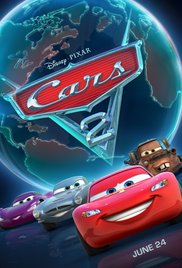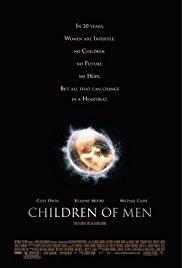 Little-known fact: Alfonso Cuarón is The Man. And chances are, no matter what kinds of movies you prefer, you’ve seen The Man’s work. When he’s not making a Mexican road movie (“Y Tu Mama Tambien”) or reinterpreting Dickens (1998’s “Great Expectations”), you might find him making a movie about some British boy wizard “Harry Potter and the Prisoner of Azkaban,” this writer’s personal favorite in the series to date). Amazingly, Cuarón walked away from the “Potter” series after making just one movie, though you’ll forgive him for doing so once you’ve seen the dazzling “Children of Men,” a brutal futuristic tale of life, interrupted.
Little-known fact: Alfonso Cuarón is The Man. And chances are, no matter what kinds of movies you prefer, you’ve seen The Man’s work. When he’s not making a Mexican road movie (“Y Tu Mama Tambien”) or reinterpreting Dickens (1998’s “Great Expectations”), you might find him making a movie about some British boy wizard “Harry Potter and the Prisoner of Azkaban,” this writer’s personal favorite in the series to date). Amazingly, Cuarón walked away from the “Potter” series after making just one movie, though you’ll forgive him for doing so once you’ve seen the dazzling “Children of Men,” a brutal futuristic tale of life, interrupted.
The story takes place in London in the year 2027. The human race has become infertile, and the resulting effect on society has led to worldwide chaos. England, if the media is to be believed, is the last nation standing thanks to its being an island, but they are now faced with an overwhelming immigration problem. The country is a police state, and refugee camps abound. Ironically, none of this means anything to former activist Theo (Clive Owen), until his ex-wife Julian (Julianne Moore), who now works with one of the many underground immigrant movements, needs help in transporting a Jamaican girl named Kee (Claire-Hope Ashitley) out of the country and to the group the Human Project, which may or may not exist (their headquarters is on a boat in the ocean), without drawing attention. Julian’s reason: Kee is pregnant, and Julian fears that the government will dispose of her rather than use her to look for a way to cure mankind.
This is a special kind of futuristic sci-fi, one that is both modern (the billboards on the buses are digital video, and new technology still flourishes) and decimated (the streets look like Nazi-occupied Europe during WWII), which stands in stark contrast to the slick but dreary backdrops in movies like “Blade Runner” and “V for Vendetta.” Cuarón seems to be at home in both worlds, and proves it with a couple of massive one-take shots that are nothing short of spellbinding (to say more would spoil the fun).
Perhaps the most shocking thing about “Children of Men” is how the story morphs from a “Vendetta”-style fable about oppressive government to a startlingly anti-political (and possibly pro-religious; I haven’t read P.D. James’ book, so I’m not exactly sure) parable about loving thy neighbor. The subject matter may be bleak, but it is not without hope, which is rather timely given the book debuted 14 years ago. But perhaps these are just the words of a man who laughed at Michael Caine playing an aging drug dealer (“Can you taste the strawberry?”) who’s listening to either “Ruby Tuesday” or raucous hip-hop. While we’re on the subject, monster propers go to the supervisor of the soundtrack, which features King Crimson, Jarvis Cocker, Deep Purple and, God help me for missing this one during the movie, Junior Parker covering the Beatles’ “Tomorrow Never Knows.”
My Best of 2006 list would look a hell of a lot different had I seen “Children of Men” before now (now being January 3, 2007). The movie was meticulously shot and, while not as emotionally engrossing as I would have liked, it is still wildly compelling. Perhaps most importantly, it raises the stakes for all concerned, including the Spielbergs of the world, in terms of what a drama, a sci-fi flick, and a period piece can and should be. Like I said, Alfonso Cuarón is The Man.
 (4 / 5)
(4 / 5)




 (3 / 5)
(3 / 5)
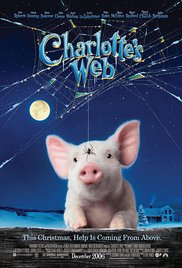
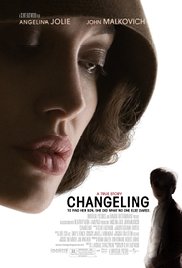
 (2 / 5)
(2 / 5)
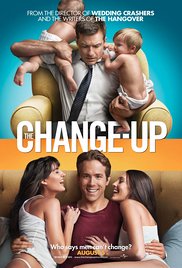
 (2.5 / 5)
(2.5 / 5)
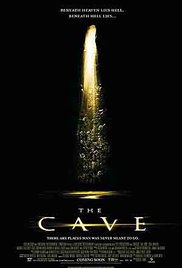
 (1 / 5)
(1 / 5)
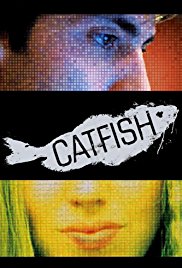
 (3.5 / 5)
(3.5 / 5)

